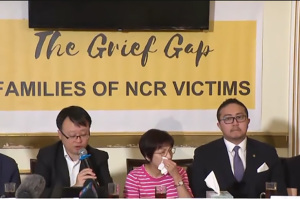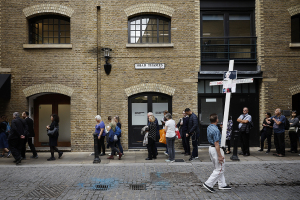Bipartisan House Group May Roll Out Immigration Reform Plan This Week
A bipartisan group of congressmen in the House, many of whom have been working on immigration reform for four years, are planning to roll out a plan as early as this week that will include an "indirect" path to citizenship from guest worker status.
"Our bill does not grant any fast track to citizenship for anyone who has broken the law," said Rep. John Carter (R-Texas), who told The Christian Post that although he cannot disclose any of the details, he would confirm that E-Verify would be a big part of their plan.
Carter said Friday the group is "very, very close to having a finished product next week."
The House reform plan will include "built in consequences for breaking the law, and an indirect path to citizenship," said Carter, who re-emphasized that the group is not orchestrating any new path to citizenship for those who are already in the United States.
The group is also likely to propose criminal background checks, fines, paying back taxes, access to citizenship for children of undocumented workers, and increased temporary visa enforcement.
Members of the House group, which includes two Democrats and one Republican on the House Judiciary Committee, is comprised of eight members: Democrats John Yarmuth (Ky.), Luis Gutierrez (Ill.), Xavier Bacerra and Zoe Lofgren, both of California, and Republicans John Carter and Sam Johnson, both from Texas, Mario Diaz-Balart (Fla.) and Raul Labrador (Idaho).
Reps. Bacerra, Lofgren, Carter, Johnson and Diaz-Balart are among the members who started meeting privately to discuss immigration reform four years ago, a House Democratic aide said.
"We set out to be law enforcers, but we are also trying to come up with a compassionate [plan] dealing with the human beings that are involved," said Carter, who emphasized that the House members' goal is to deal with past problems as well as set a course for the future direction of immigration policy in the U.S.
Carter added that the members haven't yet figured out how they will release their immigration reform plan, but according to a Democratic aide, they could take the bill to the Judiciary Committee, the House floor, or go see if they can get sponsors.
Border security is also a concern, and according to sources familiar with the group's plan. Members of both parties want to ensure that border security is part of any immigration reform bill.
Carter confirmed this when he told The Christian Post that: "Nothing will happen until we are confident that the border is secure."
Likewise, although there is no confirmed agreement, it is possible that the group's plan will include an increase in the number of green cards available to immigrants, according to House sources.
Rep. Bob Goodlatte (R-Va.), chairman of the House Judiciary Committee, voiced his concerns about current immigration laws that are ineffective and counterintuitive, during last month's hearing on immigration reform: "The United States has the most generous legal immigration system in the world – providing permanent residence to over a million immigrants a year."
"And yet, all is not well," said Goodlatte, who added that prospective immigrant workers with approved petitions often have to wait years for green cards to become available; as do their employers.
He added that current U.S. laws erect unnecessary hurdles for immigrant farmers and that the agriculture guest worker program is "unworkable and needs to be reformed."
"At the same time, we allocate many thousands of green cards on the basis of pure luck through the diversity lottery," Goodlatte said. "And we allocate many thousands of green cards to non-nuclear family members. Some characterize this as 'chain migration,' which former Florida Governor Jeb Bush has recently written 'does not promote the nation's economic interests.'"
Carter said he's hopeful that when the bill is made public, people will say that the House group did the right thing.
"We are not rewarding people for breaking the law, but we took into consideration that this is dealing with people, not numbers, and families, not categories."





























